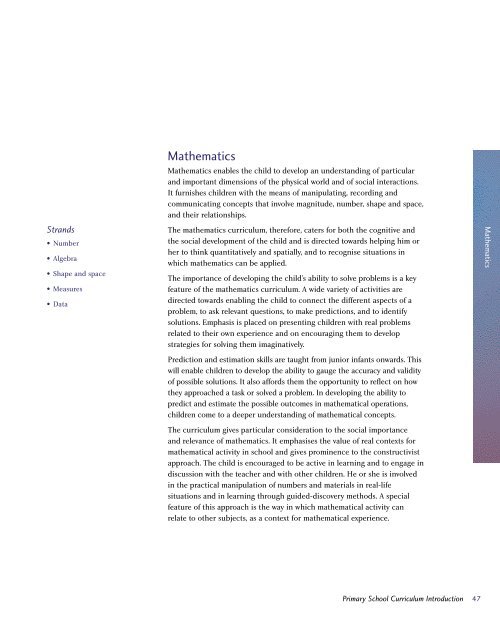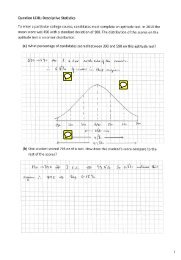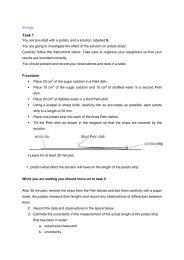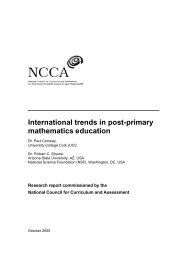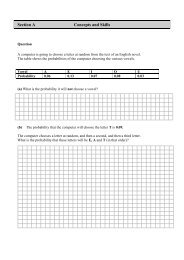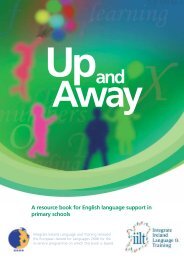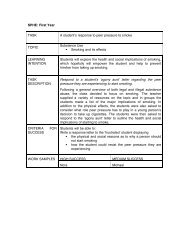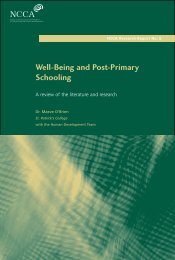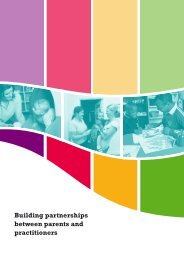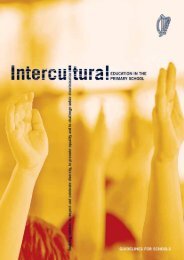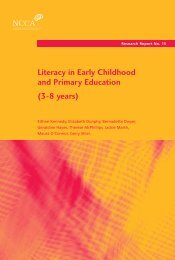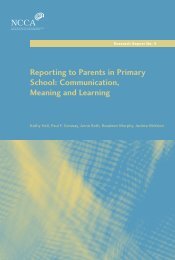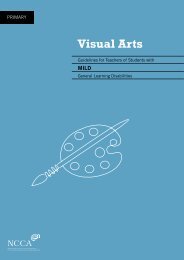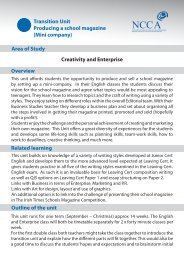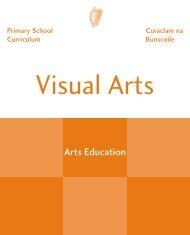Primary School Curriculum Curaclam na Bunscoile - NCCA
Primary School Curriculum Curaclam na Bunscoile - NCCA
Primary School Curriculum Curaclam na Bunscoile - NCCA
Create successful ePaper yourself
Turn your PDF publications into a flip-book with our unique Google optimized e-Paper software.
Strands<br />
• Number<br />
• Algebra<br />
• Shape and space<br />
• Measures<br />
• Data<br />
Mathematics<br />
Mathematics e<strong>na</strong>bles the child to develop an understanding of particular<br />
and important dimensions of the physical world and of social interactions.<br />
It furnishes children with the means of manipulating, recording and<br />
communicating concepts that involve magnitude, number, shape and space,<br />
and their relationships.<br />
The mathematics curriculum, therefore, caters for both the cognitive and<br />
the social development of the child and is directed towards helping him or<br />
her to think quantitatively and spatially, and to recognise situations in<br />
which mathematics can be applied.<br />
The importance of developing the child’s ability to solve problems is a key<br />
feature of the mathematics curriculum. A wide variety of activities are<br />
directed towards e<strong>na</strong>bling the child to connect the different aspects of a<br />
problem, to ask relevant questions, to make predictions, and to identify<br />
solutions. Emphasis is placed on presenting children with real problems<br />
related to their own experience and on encouraging them to develop<br />
strategies for solving them imagi<strong>na</strong>tively.<br />
Prediction and estimation skills are taught from junior infants onwards. This<br />
will e<strong>na</strong>ble children to develop the ability to gauge the accuracy and validity<br />
of possible solutions. It also affords them the opportunity to reflect on how<br />
they approached a task or solved a problem. In developing the ability to<br />
predict and estimate the possible outcomes in mathematical operations,<br />
children come to a deeper understanding of mathematical concepts.<br />
The curriculum gives particular consideration to the social importance<br />
and relevance of mathematics. It emphasises the value of real contexts for<br />
mathematical activity in school and gives prominence to the constructivist<br />
approach. The child is encouraged to be active in learning and to engage in<br />
discussion with the teacher and with other children. He or she is involved<br />
in the practical manipulation of numbers and materials in real-life<br />
situations and in learning through guided-discovery methods. A special<br />
feature of this approach is the way in which mathematical activity can<br />
relate to other subjects, as a context for mathematical experience.<br />
<strong>Primary</strong> <strong>School</strong> <strong>Curriculum</strong> Introduction<br />
47<br />
Mathematics


